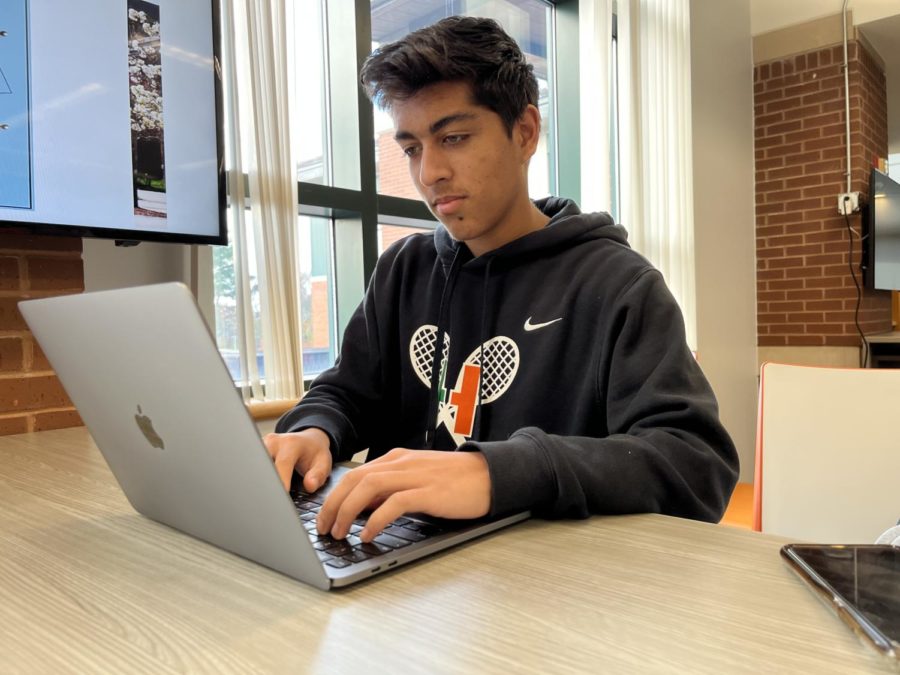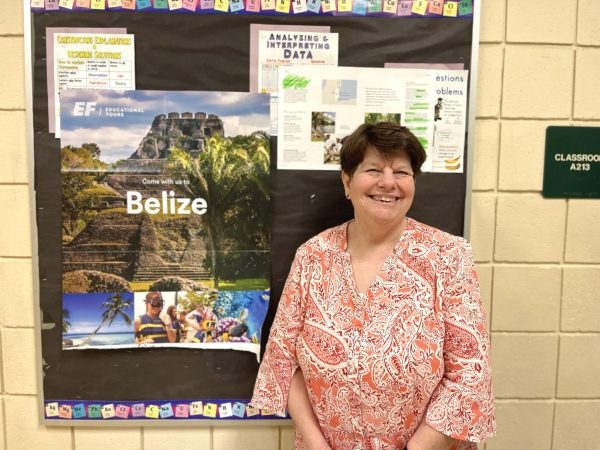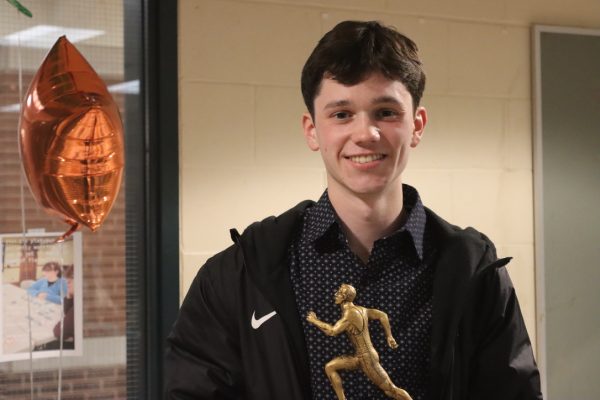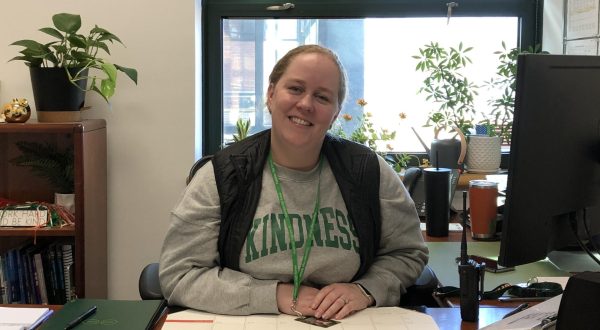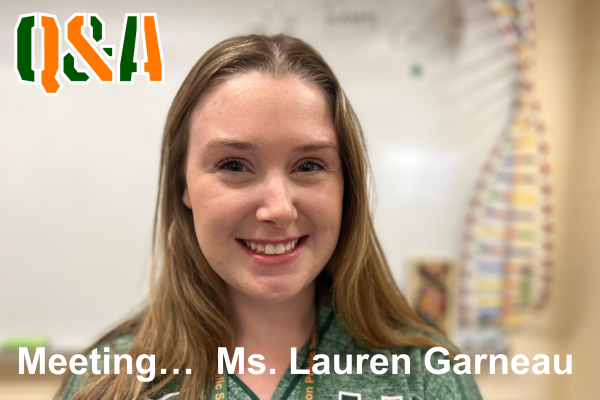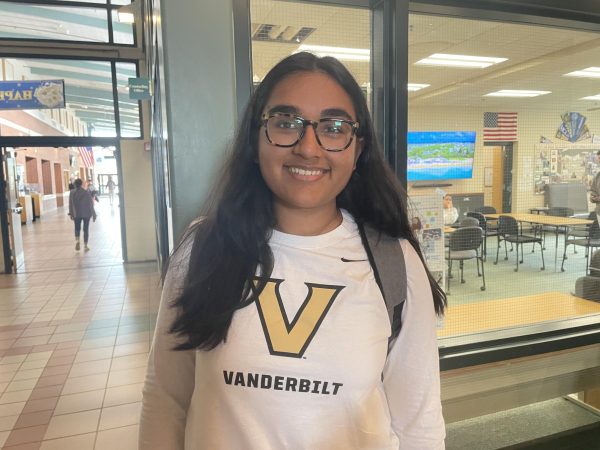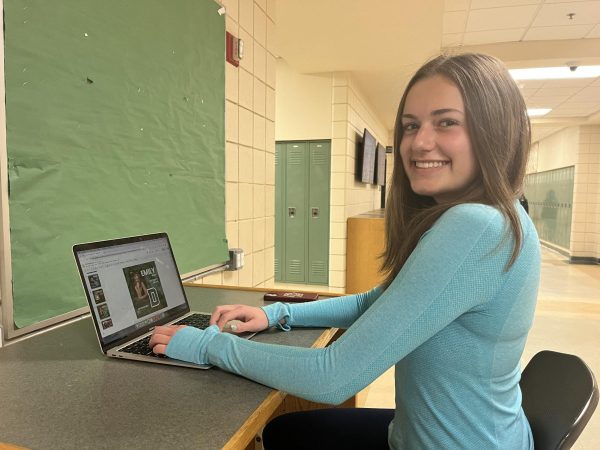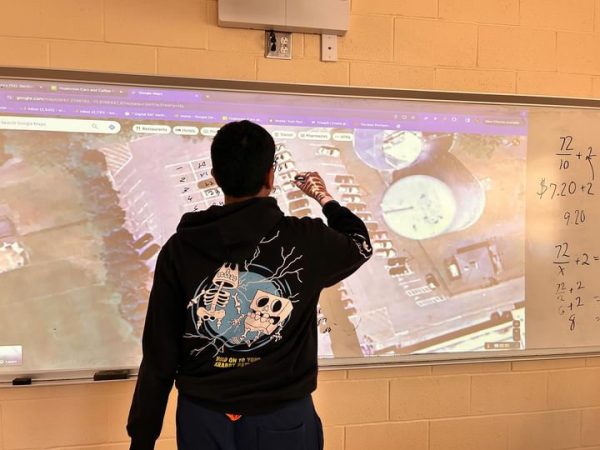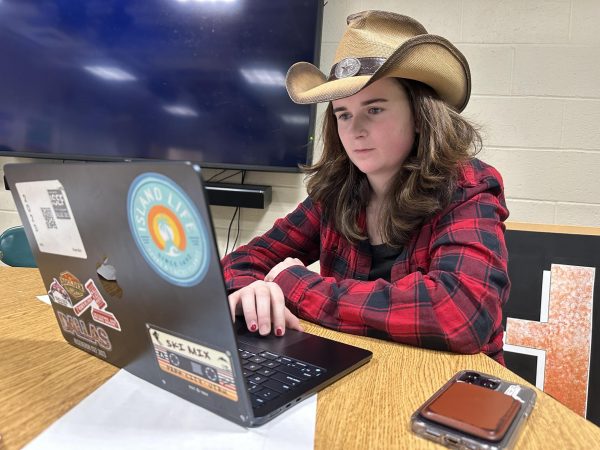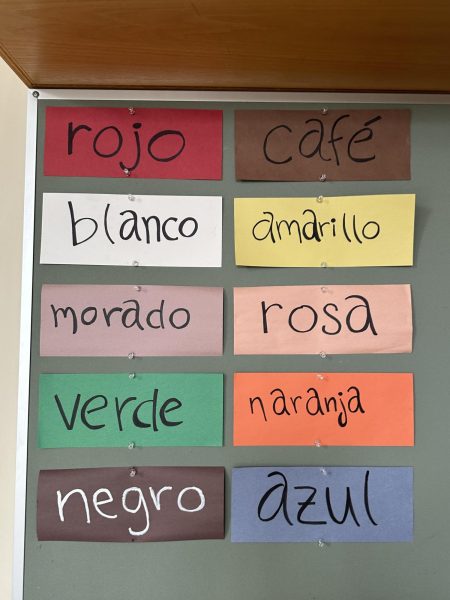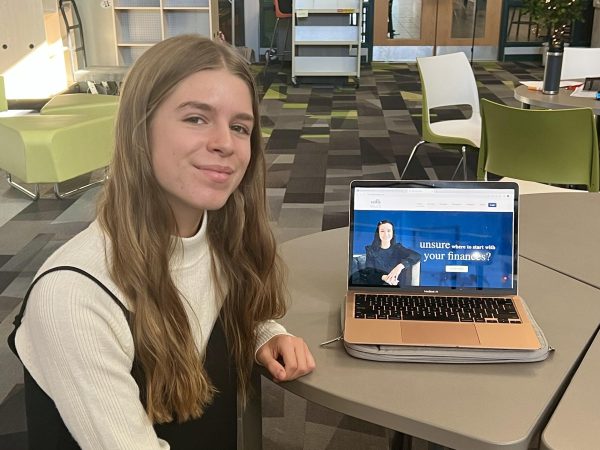Crossing the First Finish Line
Students and faculty members reflect on their experiences from the first wave of the college application process.
Senior Pranav Kapur racing to finish his supplemental essays during his study in the library at school.
While many students look forward to the fun they’ll have in senior year, they must first overcome the challenge of college applications. The majority of seniors across the country submit their first applications by the November 1 deadline.
Guidance counselor Adelaide Greco has helped thousands of students with their college application process.
Greco said the stress levels students are feeling are typical during this time of year, but she was surprised that students procrastinated until the last day.
“I guess sometimes people work better with pressure on,” Greco said.
Greco explained that no two student college processes are ever the same, and it often depends on their personal experiences and challenges.
Senior Paul Litscher has found the process relatively trouble-free.
“It was pretty easy. Not as hard as I was told but, the writing process has been a little difficult. Other than that, I’ve been handling it well,” senior Paul Litscher said.
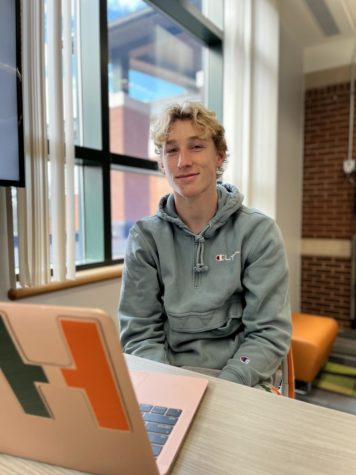
On the other hand, many students like Pranav Kapur missed school this week to finish their work before the deadline hit.
“I did have to take a day off of school today, so I could’ve managed my time a little better. I did a couple of my essays last night and this morning,” Kapur said on deadline day November 1.
“I mean, I was more focused on schoolwork and didn’t put enough time into my applications as I should have,” Kapur said.
Kapur explained that he struggled with time management due to his schoolwork and his extracurricular activities.
“Earlier in the fall, I played on the golf team after school, so I didn’t have much time for college apps. But now, I’ve been able to do my homework and essays.”
Similarly, Kyra Torgerson, captain of the girl’s cross country team and vice president of the environmental club, said she felt a little overwhelmed by all her work but still found ways to devote time to her college applications.
“I think that blocking out a specific time when I don’t have a lot of homework one night, or on a weekend when I have a free afternoon is helpful,” Torgenson said. “Just setting aside like a few hours to work on stuff I can chip away at.”
Teachers and counselors have tried to help simplify the process for students the best they can but emphasize the students must do the work.
AP physics teacher Patricia Noblett said she tries to be aware of her students’ application process, but it does not change her teaching methods because of the strict schedule the class requires to prepare students for the AP exam.
“We constantly discussed in class the long-term assignments, managing time, and understanding that deadlines were coming. I tried to peel back a little bit as much as I could to not put too much on their plates,” Noblett said.
Greco explained that guidance counselors do their best to help assist students, but the only real way to help them is by communicating.
“Checking in with them and just making sure they’re on task,” Greco said. My priority right now is making sure I’m answering any questions that they have and finding time for students in between classes to pop in.”
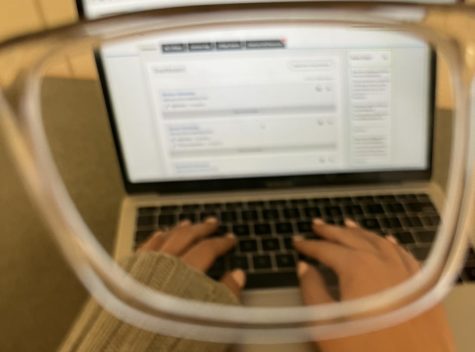
“The kids are pretty much on track, but there’s a lot of details that they’re worried about. One thing that’s complicated this year is the self-reporting of transcripts.”
Greco explained that many colleges this year require students to submit their full transcripts on an alternate website. She said this adds to student stress levels because they must ensure every class and grade is put in correctly.
Having gone through the experience, students can reflect on the process and what they might improve in their application knowing what they know now.
“[Applications] are not going to be perfect since there are so many kids and they can only learn a little bit about each kid, but it still works well,” Kapur said.
“I feel like it could be a more holistic review of my application because they say it is a holistic review. But I feel like they weigh in some key factors a little more than factors that deserve a lot more attention,” said Litscher.
Torgerson went into more detail on the importance of different factors in the application.
“Sometimes people can change their writing to fit what they think colleges want them to say. So, sometimes it can be a little disingenuous, but I think that interviews are a really good way to get to know someone,” Torgerson said.
In the end, students may feel some relief after finally submitting the first major part, but another round awaits with January 15 being the next deadline.

